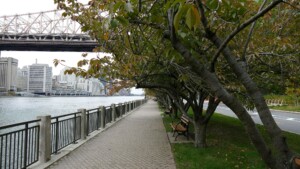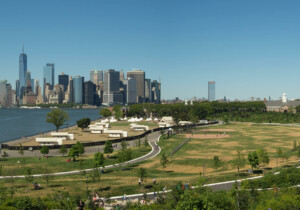Columbia University’s Graduate School of Architecture, Planning and Preservation (Columbia GSAPP) and the Rockefeller Foundation have teamed up to found the Center for Resilient Cities and Landscapes at GSAPP. The newly created center will unite science and cultural considerations with design and planning, and Columbia has announced that landscape architect Kate Orff of SCAPE Landscape Architecture and urban designer Thaddeus Pawlowski will helm the project.
Drawing from the university’s climate science and design expertise, the Center will collaborate with partners across Columbia to improve, accelerate and implement resilience projects for cities. This interdisciplinary model will involve partners from Columbia’s Earth Institute Climate Adaptation Initiative, and bring a holistic approach to resilience that will combine academic work with the Center’s existing external partners.
“Design and planning methods are rapidly changing to face issues of climate dynamics and the need for resilient, flexible, and equitable urban landscapes,” said Columbia GSAPP Dean Amale Andraos in a press release. “Working jointly with natural and built systems is of critical importance – it offers a way forward for communities to adapt and prepare for the future.”
The Center’s first project will be the launch of a Resilience Accelerator, funded by a $3.7 million grant from the Rockefeller Foundation, a joint effort between GSAPP and the Rockefeller Foundation’s 100 Resilient Cities (100RC) nonprofit.

The accelerator will take projects for its first cohort from 100RC partner cities starting this spring, and two finalists will work with the Center every academic semester. Over the next two years, eight cities in total will work with GSAPP students, groups from the private sector, and other resources across Columbia and 100RC to run workshops, seminars and design studios to bring their ideas to fruition.
“What we are looking to do is to combine design thinking, the creative, iterative design process, together with the related disciplines, particularly law, policy, climate science and engineering,” Orff told AN. “We’ve only just begun, and the goal is to bring resilient thinking as a cross-cutting initiative across the university.”
Orff, a 2017 MacArthur genius grant recipient, is no stranger to thinking about the future threatened by climate change. Orff and SCAPE regularly incorporate flooding or resiliency considerations into their designs, whether it’s with plans for a living breakwater, or at conferences meant to address the impact of a changing clime on the built environment.











